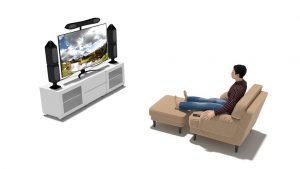There’s no denying work can be stressful. For those of us who suffer from an anxiety disorder, each day can be a struggle to get out of bed, get dressed, and get to work on time. Those who are unsure of their talents and abilities may voluntarily miss out on opportunities that would put them ahead in their companies because they don’t know if they’d be able to fulfill the needs of the position. Public speaking and traveling can be difficult for most people to adjust to, but missing opportunities willingly can also exacerbate symptoms of anxiety disorders.
In order to mitigate the symptoms of anxiety disorders and manage anxiety in the workplace, it’s a good idea to be proactive every day so you can live a happy and healthy work life. It’s also important to realize that feeling anxious is a perfectly normal response to stress, but if it becomes overwhelming, that’s when you need to actively take steps to make positive changes for your overall wellbeing.
Be Self-Aware
Being self-aware means checking in on your own physical and emotional responses when feelings of anxiety arise. Be mindful of what exactly is causing your stress and try to see how you can make changes. Are you overwhelmed by unrealistic deadlines? Do you dread everyday responsibilities? Figure out whether or not you need to reorganize or if you’re procrastinating on projects. Don’t try and disregard your feelings because they won’t go away, in fact, they’ll probably intensify. Instead, try to pinpoint exactly what is causing the excessive stress.
Make time for yourself
When our plates are full and we feel like we have no time for ourselves, that’s when we especially need to carve out our day and make extra time. When we’re feeling anxious and overwhelmed, we’re less likely to exercise, but our bodies need it most at that time. Try hard to care for your mind and body by eating the right foods, getting enough sleep each night, and squeezing in some workout time.
Reach out to friends and family
Loved ones can be a source of guidance, wisdom, and support. More than likely, you have someone in your circle who is experiencing feelings of anxiety and a loss of control. If not, someone is going to have gone through it at some point in their past. Even if you don’t want to discuss this with friends and family, just knowing they are there for you can be a positive re-enforcement.
Seek help from a professional
There is no shame in asking for help if you aren’t managing your anxiety alone. If you’re struggling with an anxiety disorder and don’t feel like you’re getting anywhere, it’s best to seek out help in order to manage it effectively. A clinical psychologist will help you figure out not only where your stress is coming from, but how to deal with it so you can live a life that is not controlled by anxiety, but by yourself.











